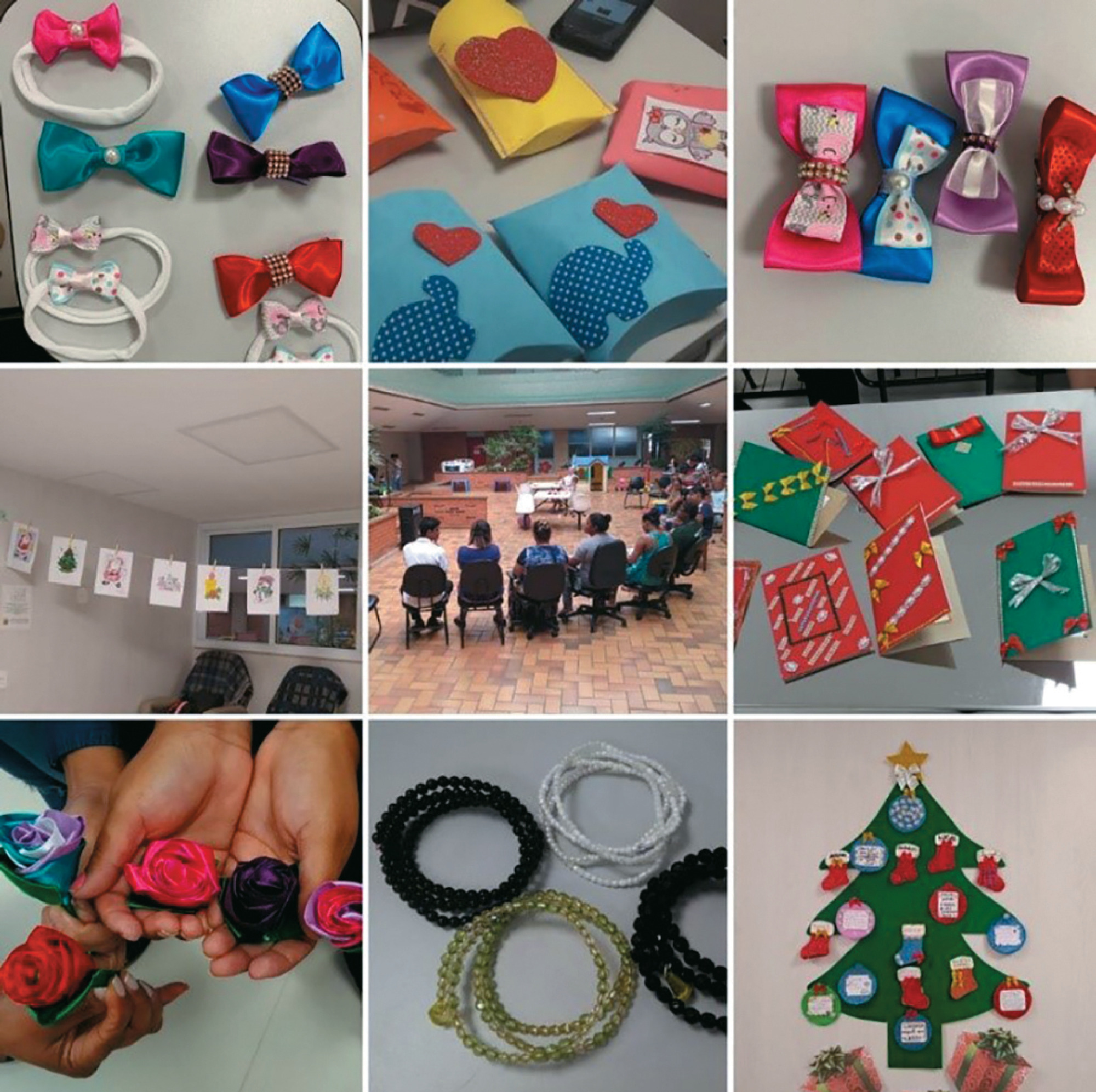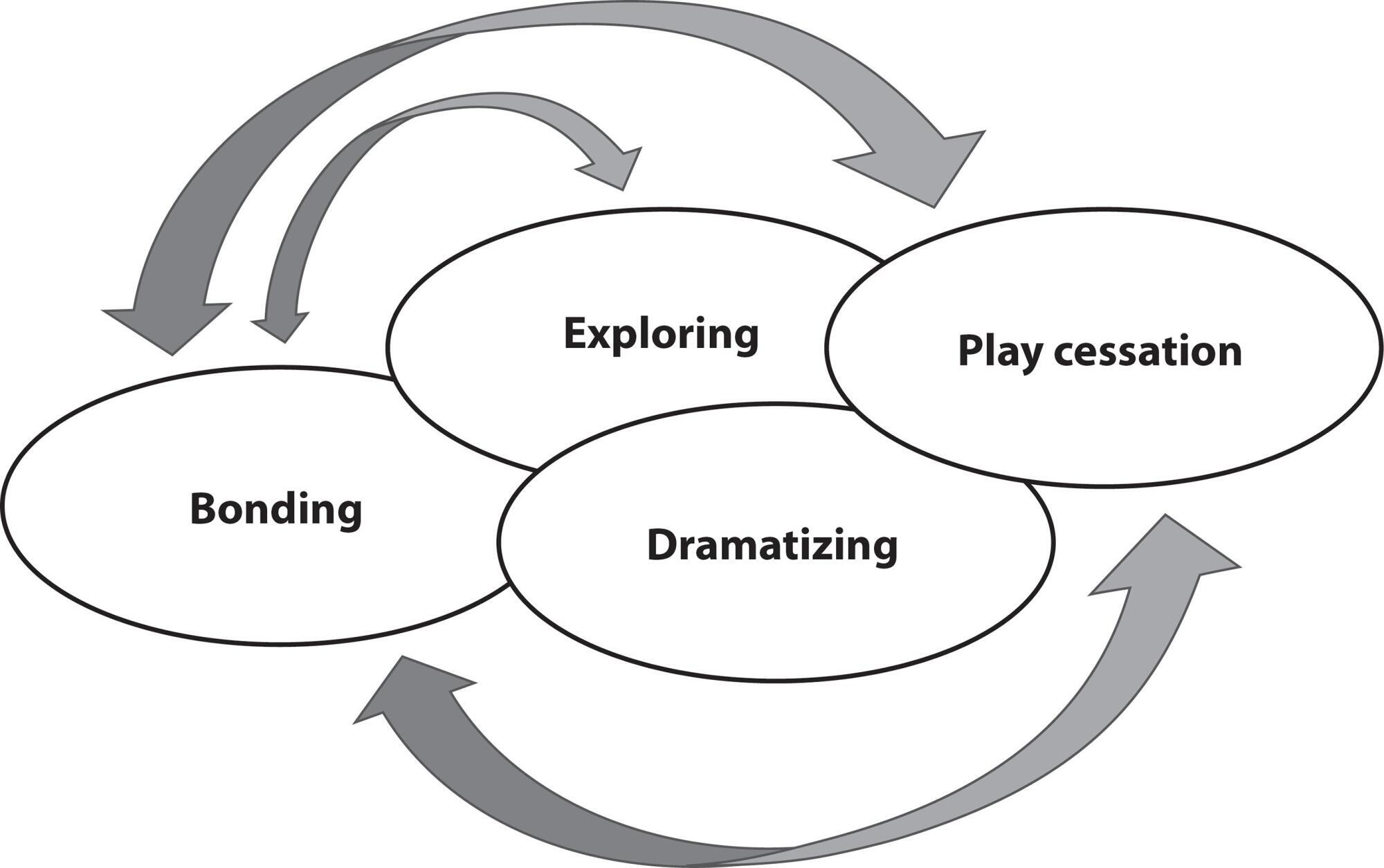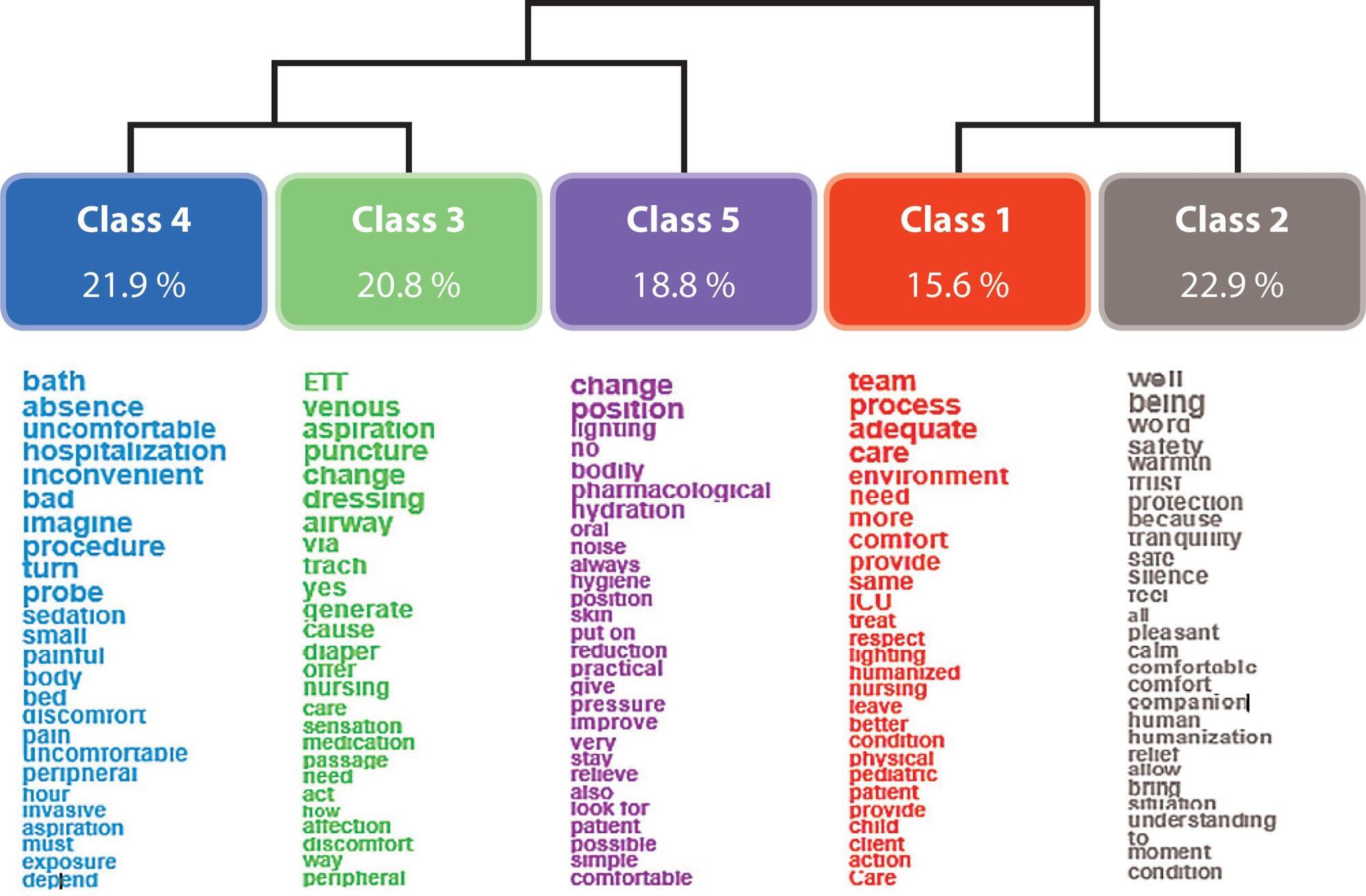-
EXPERIENCE REPORT
Support group for families with children in a pediatric intensive care unit
Revista Brasileira de Enfermagem. 2022;75(2):e20210097
09-29-2022
Resumo
EXPERIENCE REPORTSupport group for families with children in a pediatric intensive care unit
Revista Brasileira de Enfermagem. 2022;75(2):e20210097
09-29-2022DOI 10.1590/0034-7167-2021-0097
Visualizações0ABSTRACT
Objective:
To describe the process of creating and implementing a support group for families with children in a pediatric intensive care unit.
Methods:
A professional experience report described using a management and planning tool.
Results:
This is a pioneering initiative in the hospital. The application of the tool enabled the delineation of the scope, justification, location, frequency, responsible persons, approach, and budget. After its implementation, the group enables significant interaction between health professionals-families and families-families, favoring the formation of therapeutic bonds and stimulating social and emotional support networks.
Conclusion:
The tool effectively planned the group and highlighted its effects on family coping and the relationships between professionals and families.
Palavras-chave: Child, HospitalizedFamilyIntensive Care Units, PediatricPediatric NursingSelf-Help GroupsVer mais
-
ORIGINAL ARTICLE
From despair to hope: copying of relatives of hospitalized children before bad news report
Revista Brasileira de Enfermagem. 2020;73(suppl 5):e20200340
11-16-2020
Resumo
ORIGINAL ARTICLEFrom despair to hope: copying of relatives of hospitalized children before bad news report
Revista Brasileira de Enfermagem. 2020;73(suppl 5):e20200340
11-16-2020DOI 10.1590/0034-7167-2020-0340
Visualizações0Ver maisABSTRACT
Objective:
to understand the experiences of relatives of critically ill children before bad news report.
Method:
a phenomenological study based on Heidegger’s philosophical framework. Data collection was carried out from October 2018 to March 2019, through phenomenological interviews with 15 relatives of children hospitalized in a Pediatric Intensive Care Unit.
Results:
relatives, in their existentiality, experience the facticity thrown into unpredictable situations, regardless of their choices and are faced with feelings of shock, despair and fear before bad news. After emotional impact, especially regarding the possibility of death, relatives reveal hope as a mechanism for coping with the situation.
Final considerations:
solidarity and sensitivity by health professionals, especially nurses, are essential in understanding the existential dimension of relatives who experience such an experience, understanding the several facets of their existence and offering them opportunities to project themselves.
-
ORIGINAL ARTICLE
Patient safety: perception of family members of hospitalized children
Revista Brasileira de Enfermagem. 2020;73(5):e20190525
07-08-2020
Resumo
ORIGINAL ARTICLEPatient safety: perception of family members of hospitalized children
Revista Brasileira de Enfermagem. 2020;73(5):e20190525
07-08-2020DOI 10.1590/0034-7167-2019-0525
Visualizações0Ver maisABSTRACT
Objectives:
to know the meaning attributed by family members to the health safety of pediatric patients, with attention to the possibilities of their collaboration.
Methods:
this qualitative study was conducted with eighteen family members of children hospitalized in a pediatric unit, from January to July 2018. Symbolic Interactionism was used as a theoretical framework, and Inductive Content Analysis as method.
Results:
child hospitalization poses risks to possible incidents and adverse events. Participants and professionals are responsible for patient safety. Thus, their actions focus on error prevention. Therefore, they seek information and observe in a vigil way professional care in classic aspects of safety. They conceive essential and favoring safety the approach centered on children and family members.
Final Considerations:
family members recognized the chances of errors and care damage, identified themselves as support in minimizing damage and were in partnership with the professional, increasing chances of effecting safety.
-
ORIGINAL ARTICLE
Understanding the dramatic therapeutic play session: a contribution to pediatric nursing
Revista Brasileira de Enfermagem. 2020;73(4):e20180812
06-08-2020
Resumo
ORIGINAL ARTICLEUnderstanding the dramatic therapeutic play session: a contribution to pediatric nursing
Revista Brasileira de Enfermagem. 2020;73(4):e20180812
06-08-2020DOI 10.1590/0034-7167-2018-0812
Visualizações0Ver maisABSTRACT
Objectives:
to understand how the dramatic therapeutic play session occurs within the care of hospitalized children.
Methods:
qualitative multiple case study, using theoretical references, such as symbolic interactionism and Vygotsky’s theory of symbolic play. Twenty play sessions performed with six children from 3 to 10 years old were analyzed, each corresponding to one case.
Results:
these sessions demonstrated that a dramatic therapeutic play session is a process of four interdependent and complementary steps: bonding, exploring, dramatizing, and play cessation. They also revealed the imaginary situations externalized by the child, the importance of the exploration step for which they manage the imaginary situation and catharsis, and how her higher psychological faculties are articulated during this process.
Final Considerations:
the results contribute to the understanding of the conduct and analysis of the dramatic therapeutic play session, reinforcing the importance of its use in pediatric nursing care practice.

-
ORIGINAL ARTICLE
Comfort of the child in intensive pediatric therapy: perception of nursing professionals
Revista Brasileira de Enfermagem. 2020;73(4):e20180922
05-18-2020
Resumo
ORIGINAL ARTICLEComfort of the child in intensive pediatric therapy: perception of nursing professionals
Revista Brasileira de Enfermagem. 2020;73(4):e20180922
05-18-2020DOI 10.1590/0034-7167-2018-0922
Visualizações0ABSTRACT
Objectives:
o analyze the concept of comfort in a Pediatric Intensive Care Unit from the perspective of nursing professionals.
Methods:
descriptive research, with qualitative-quantitative approach, conducted in an Intensive Care Unit. Data collection occurred between January and May 2017; 40 nursing professionals participated in the study. The textual data obtained in the semi-structured interviews was processed in the Iramuteq 7.2 software. The Descending Hierarchical Classification and Bardin analysis were used for the discussion. Katharine Kolcaba’s concepts were used as theoretical framework.
Results:
three categories emerged: the environment that promotes (dis)comfort; feasible actions to promote comfort; uncomfortable actions in care.
Final Considerations:
it was possible to identify that comfort is offered by providing measures that favor the well-being, warmth, safety and tranquility of hospitalized children. The study brings a reflection about the nursing care provided to severely ill hospitalized children.
Palavras-chave: Child, HospitalizedHumanization of AssistanceIntensive Care Unit, PediatricsNursing CarePediatric NursingVer mais
-
ORIGINAL ARTICLE
The meaning of the care of hospitalized children: experiences of nursing professionals
Revista Brasileira de Enfermagem. 2019;72(suppl 3):251-258
12-13-2019
Resumo
ORIGINAL ARTICLEThe meaning of the care of hospitalized children: experiences of nursing professionals
Revista Brasileira de Enfermagem. 2019;72(suppl 3):251-258
12-13-2019DOI 10.1590/0034-7167-2018-0597
Visualizações0ABSTRACT
Objective:
to understand the meaning of the care of hospitalized children for the nursing professionals of a pediatric unit.
Method:
phenomenological study, based on the existential phenomenology of Martin Heidegger. Ten nursing professionals were interviewed with the guiding question: “What is the care of hospitalized children for you? Tell me, in detail, your experience with taking care of hospitalized children.”
Results:
the meaning of the care of hospitalized children materializes between the profession and the various ways of preoccupation. By engaging in/worrying about the ways of being of everyday life, the professionals tend to improperness when trying to mediate and level all possibilities of being. However, when they extrapolate reassurance and do not get caught up in themselves, they achieve empathy, respect, and indulgence.
Final Considerations:
it is necessary to reassess the teaching and practice of care, so that authentic care is offered to children and their families in the context of hospitalization.
Palavras-chave: Child CareChild, HospitalizedNurse PractitionersPediatric NursingQualitative ResearchVer mais -
ORIGINAL ARTICLE
Patient safety incidents identified by the caregivers of hospitalized children
Revista Brasileira de Enfermagem. 2019;72(3):707-714
06-27-2019
Resumo
ORIGINAL ARTICLEPatient safety incidents identified by the caregivers of hospitalized children
Revista Brasileira de Enfermagem. 2019;72(3):707-714
06-27-2019DOI 10.1590/0034-7167-2018-0484
Visualizações0Ver maisABSTRACT
Objective:
to analyze patient safety incidents identified by caregivers of hospitalized children.
Method:
a qualitative, exploratory-descriptive study was carried out with 40 caregivers of children hospitalized in three hospital institutions in the city of Porto Alegre, Rio Grande do Sul State, Brazil, from April to December 2016. Semi-structured, recorded and transcribed interviews were carried out in their entirety, submitted to a thematic analysis using the NVivo 11.0 software.
Results:
reports related to falls, infant feeding, patient/caregiver identification, medication process, communication, hand hygiene and hygiene of the hospital environment, spread of diseases, relations between caregivers and professionals and care processes/procedures were all cited.
Final considerations:
communication and the relations among caregivers and professionals are the main contributory factors for patient safety incidents, interfering with the quality of care. The participation of caregivers and engagement in child care may be strategies to be developed to promote a safety culture.
-
ORIGINAL ARTICLE
Productivity of subjectivity and autonomy of nursing professionals in Pediatrics
Revista Brasileira de Enfermagem. 2019;72(suppl 1):41-48
02-01-2019
Resumo
ORIGINAL ARTICLEProductivity of subjectivity and autonomy of nursing professionals in Pediatrics
Revista Brasileira de Enfermagem. 2019;72(suppl 1):41-48
02-01-2019DOI 10.1590/0034-7167-2017-0591
Visualizações0Ver maisABSTRACT
Objective:
To know the aspects involved in the production of subjectivity and autonomy of nursing professionals working in Pediatric Units.
Method:
An exploratory and descriptive study, with a qualitative approach, performed with users, professionals and nursing managers, totaling 44 participants. Data collection took place in the pediatric hospitalization units of two University Hospitals through semi-structured interviews, organized and treated by Nvivo 10 software and then submitted to content analysis.
Results:
The production of subjectivity and autonomy in nursing workers involves both the conditions of the work environment as the relation of the nursing team, the relation of hierarchy and the profile of the professional that works in the Pediatric Unit.
Final considerations:
The valorization path of the nursing profession emerges, whose knowledge and competence in the area of work contribute to the construction of autonomous subjectivities.



